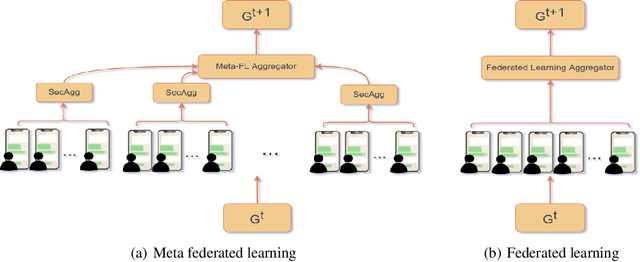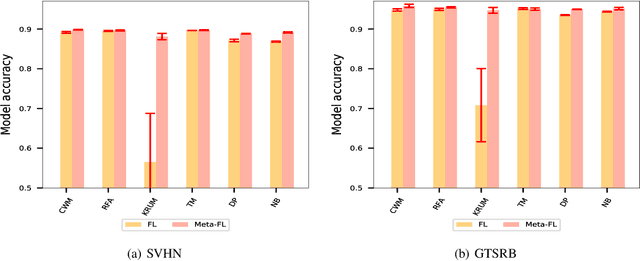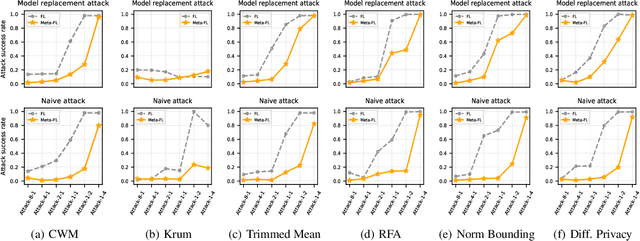Meta Federated Learning
Paper and Code
Feb 10, 2021



Due to its distributed methodology alongside its privacy-preserving features, Federated Learning (FL) is vulnerable to training time adversarial attacks. In this study, our focus is on backdoor attacks in which the adversary's goal is to cause targeted misclassifications for inputs embedded with an adversarial trigger while maintaining an acceptable performance on the main learning task at hand. Contemporary defenses against backdoor attacks in federated learning require direct access to each individual client's update which is not feasible in recent FL settings where Secure Aggregation is deployed. In this study, we seek to answer the following question, Is it possible to defend against backdoor attacks when secure aggregation is in place?, a question that has not been addressed by prior arts. To this end, we propose Meta Federated Learning (Meta-FL), a novel variant of federated learning which not only is compatible with secure aggregation protocol but also facilitates defense against backdoor attacks. We perform a systematic evaluation of Meta-FL on two classification datasets: SVHN and GTSRB. The results show that Meta-FL not only achieves better utility than classic FL, but also enhances the performance of contemporary defenses in terms of robustness against adversarial attacks.
 Add to Chrome
Add to Chrome Add to Firefox
Add to Firefox Add to Edge
Add to Edge